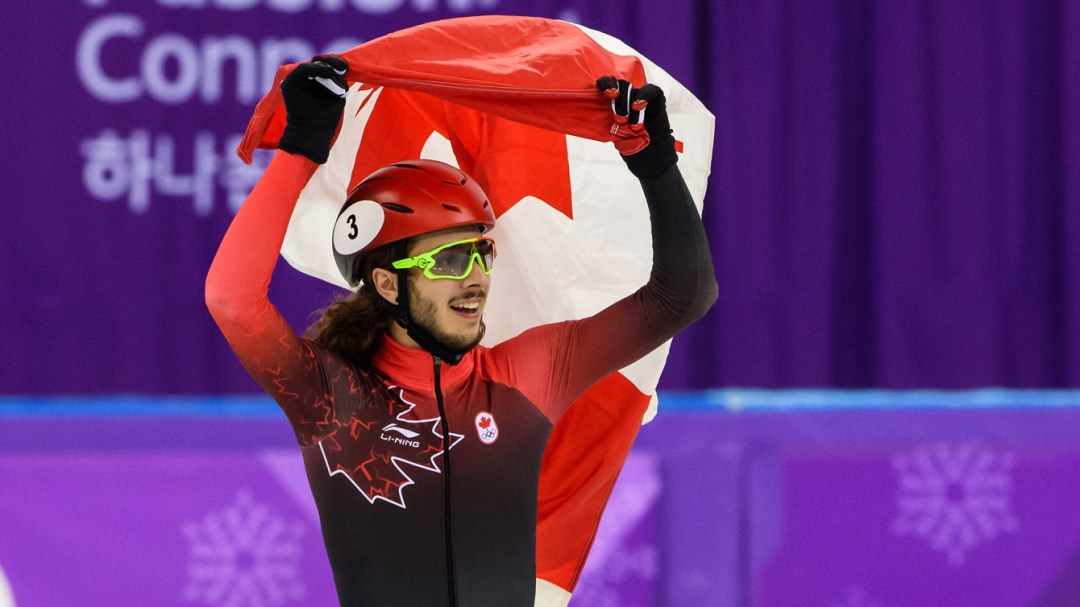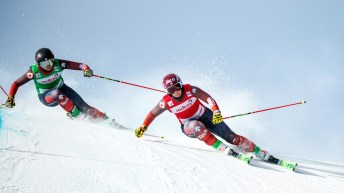Next generation of Canadian short track is here and thriving on Olympic podiums
Not all changing of the guard ceremonies come with elaborate costumes and bagpipe music. Sometimes all it requires is an intense round of skating and a nod of approval from the predecessor.
That’s what happened Saturday at PyeongChang 2018 for Canada in short track speed skating when Sam Girard won gold in men’s 1000 metres, and Kim Boutin brought home bronze in the women’s 1500m. When they both advanced to the final, a pair of Canadian legends in their sport didn’t.
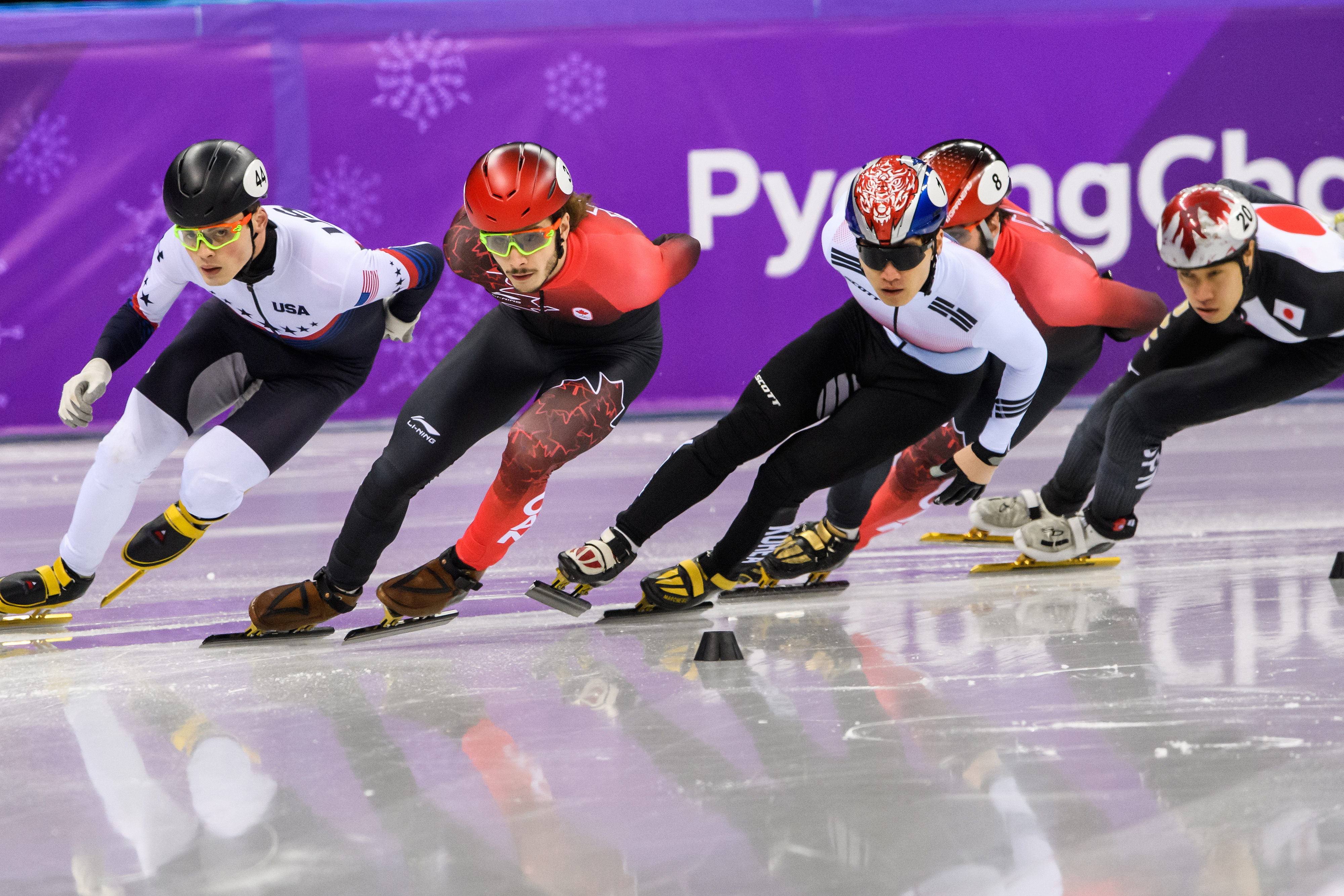
Samuel Girard and Charles Hamelin in action during the Short Track Speed Skating Men’s 1000m of the PyeongChang 2018 Winter Olympic Games at Gangneung Ice Arena on February 17, 2018 in Gangneung, South Korea (Photo by Vincent Ethier/COC)
“Just before the race he said to me, ‘let’s go, you can do this’. He gave me a tap on the back,” Girard said of a moment shared with Charles Hamelin, who was assessed a penalty in the semifinals that allowed Girard to advance.
Hamelin, the four-time Olympic medallist, was the 2016 world champion in the 1000m, winning that gold medal in the South Korean capital while his protégé Girard, took the silver. On Saturday, the apprentice stole the spotlight.
“We train together, all the team was behind me on this medal,” 21-year-old Girard said shortly after sprinting toward his 33-year-old mentor to celebrate his first Olympic medal. The bond between the two has been evident through what has been a difficult Games for Hamelin. A week ago he was assessed another penalty in the men’s 1500m final while Girard finished fourth. Talk of succession was underway then and it became complete on Saturday.
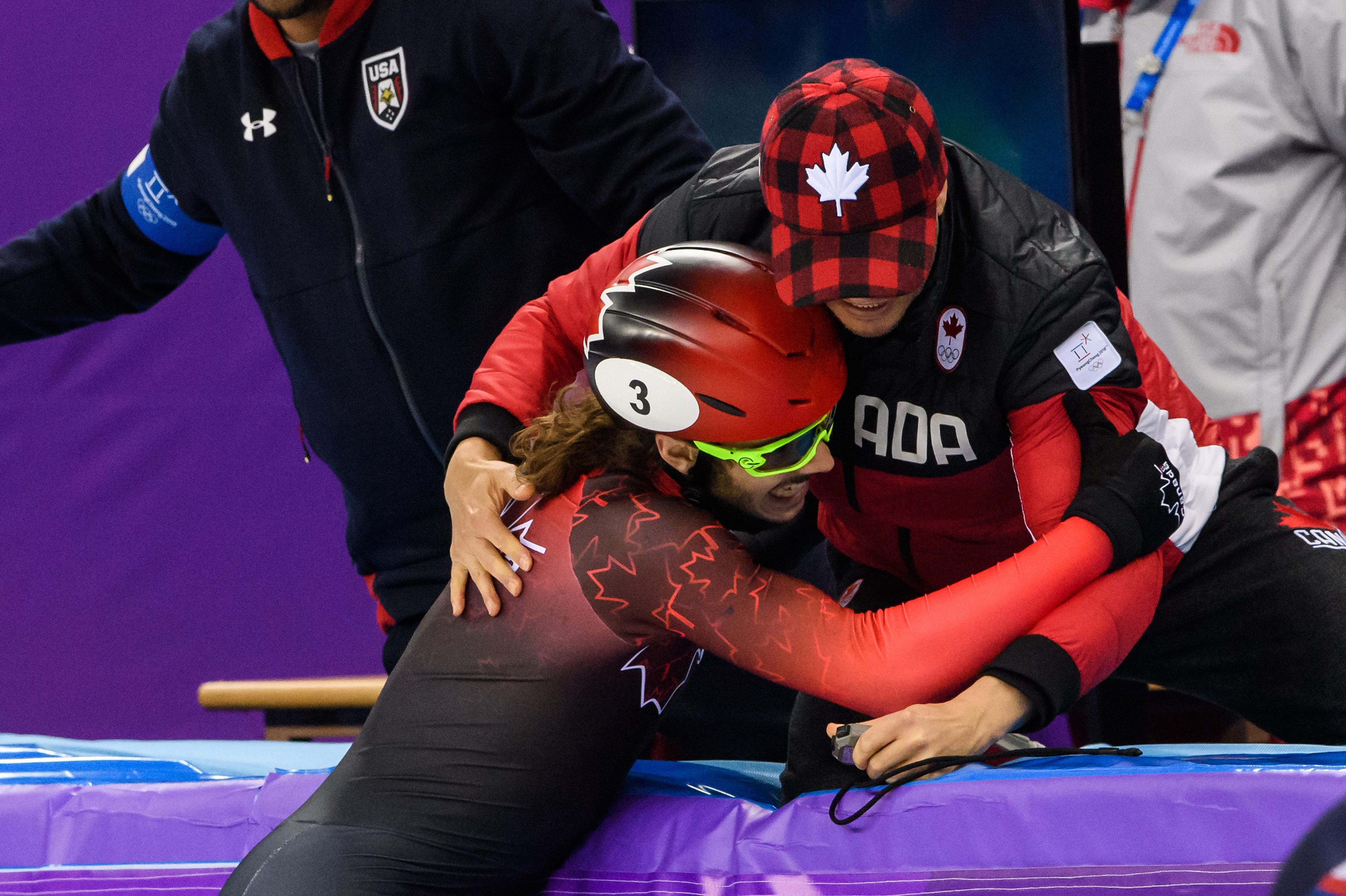
Samuel Girard wins the Gold medal in the Short Track Speed Skating Men’s 1000m Final A of the PyeongChang 2018 Winter Olympic Games at Gangneung Ice Arena on February 17, 2018 in Gangneung, South Korea (Photo by Vincent Ethier/COC)
“The plan would be to have Charles with me on the podium, but it’s short track, things happen,” said Girard. His one minute, 24.650 seconds skate edged out John-Henry Krueger (1:24.864) of the United States for gold, while Seo Yira of South Korea took bronze in 1:31.619 in a crash-filled final.
“I didn’t see it, I just heard a big boom in the mats,” Girard said of the events in the final. “After that I was just thinking about my race and what I had to do. I was looking if someone was around to pass me on the line.”
In a sport that can quickly go sideways for top skaters, Girard remained unflappable, riding the good fortune of two races to become Olympic champion. He had to put behind the fact that he benefitted from a mistake by his friend and tutor, and concentrate on the task at hand.
“We were ready for that (mental) switch to the final mode. All athletes want to be on the podium, you have to be one hundred percent on your race to give your best, so that’s what I did.”

Samuel Girard Win gold during the Short Track Speed Skating Men’s 1000m of the PyeongChang 2018 Winter Olympic Games at Gangneung Ice Arena on February 17, 2018 in Gangneung, South Korea (Photo by Vincent Ethier/COC)
Girard dominated from the start, staying at the front and avoiding altercations.
“Everyone wanted to be out of trouble. I was the guy at the front putting on a good pace trying to put everyone in trouble so they had to fight to try and pass me. I managed it pretty well, that was the key.”
While he couldn’t have Hamelin with him in the final, Girard reflected once again on what it meant to have his tutelage.
“We are roommates…we’re going to breakfast, we’re going to lunch, we’re going to dinner – every time we’re together. He’s a good friend of mine, I train with him, I’m really happy he was at the end of the ice to share (the moment) with me.”
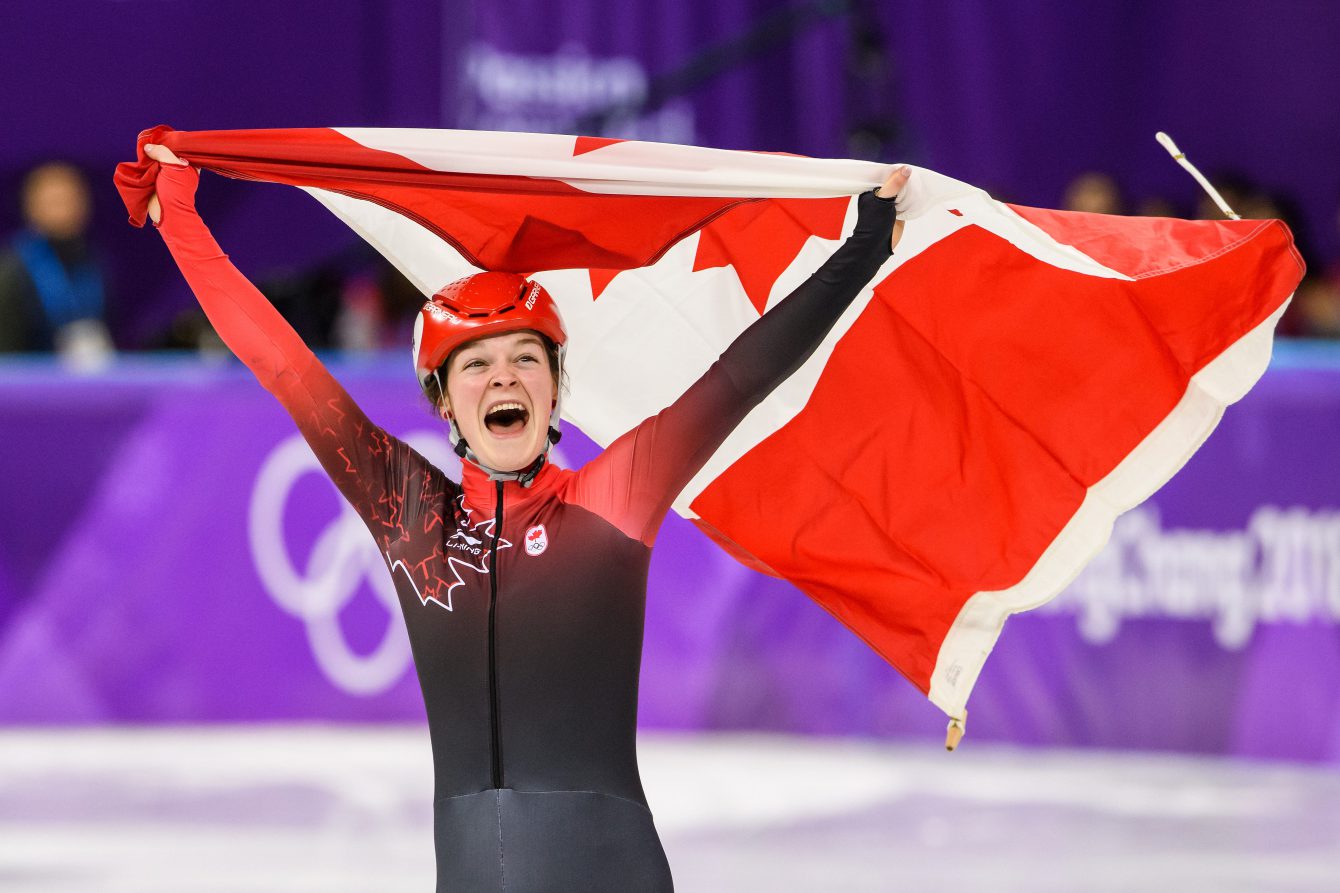
Kim Boutin wins bronze during the Short Track Speed Skating Women’s 1500m of the PyeongChang 2018 Winter Olympic Games at Gangneung Ice Arena on February 17, 2018 in Gangneung, South Korea (Photo by Vincent Ethier/COC)
For Boutin the Games have been emotionally taxing. The 23-year-old already has a bronze medal at the Games from the 500m, and the price for that has been social media messages from irate fans who felt Choi Minjeong of Korea was victimized by the Canadian en route to her podium position.
“I was pretty shaken about what happened,” Boutin said. With charming self-deprecation she admitted to being surprised that she handled it all the way to another Olympic medal.
“My team took me off of everything, but I heard some things and it hurt me a lot. But I have a pretty awesome team and they told me I don’t have to care about any of this situation because it’s under control.”
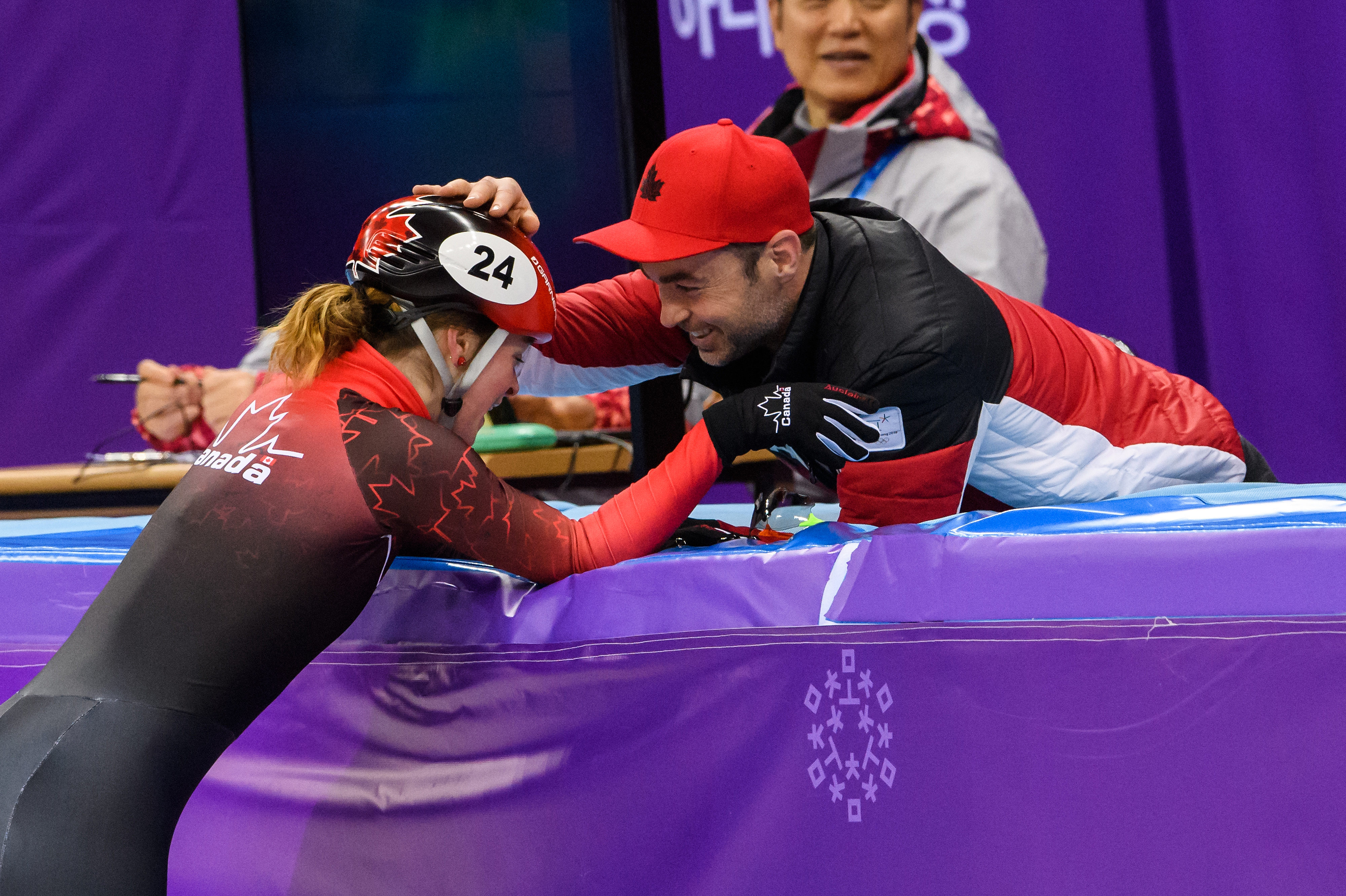
Kim Boutin wins bronze during the Short Track Speed Skating Women’s 1500m of the PyeongChang 2018 Winter Olympic Games at Gangneung Ice Arena on February 17, 2018 in Gangneung, South Korea (Photo by Vincent Ethier/COC)
Like Girard, Boutin too had to beat a friend and mentor in the semifinals. A penalty assessed to Marianne St-Gelais, one of those supportive teammates who helped keep Boutin focused, meant it was the younger, emerging Canadian, and not the three-time Olympic medallist who would move on to skate for a Canadian place on the podium.
Boutin cried during the warmups, the emotions of days filled with fright caught up to her. In the final she met Choi again, but this time the Korean took the gold comfortably in 2:24.948, while Li Jinyu of China (2:25.703) came second ahead of Boutin’s 2:25.834 bronze medal performance.
“It’s pretty unbelievable. It was a really hard race and it was pretty exciting. I feel like I did pretty well. It was a lot of work behind me, just making the final for me is a big bonus. I did it two times (now) so it’s unbelievable.”
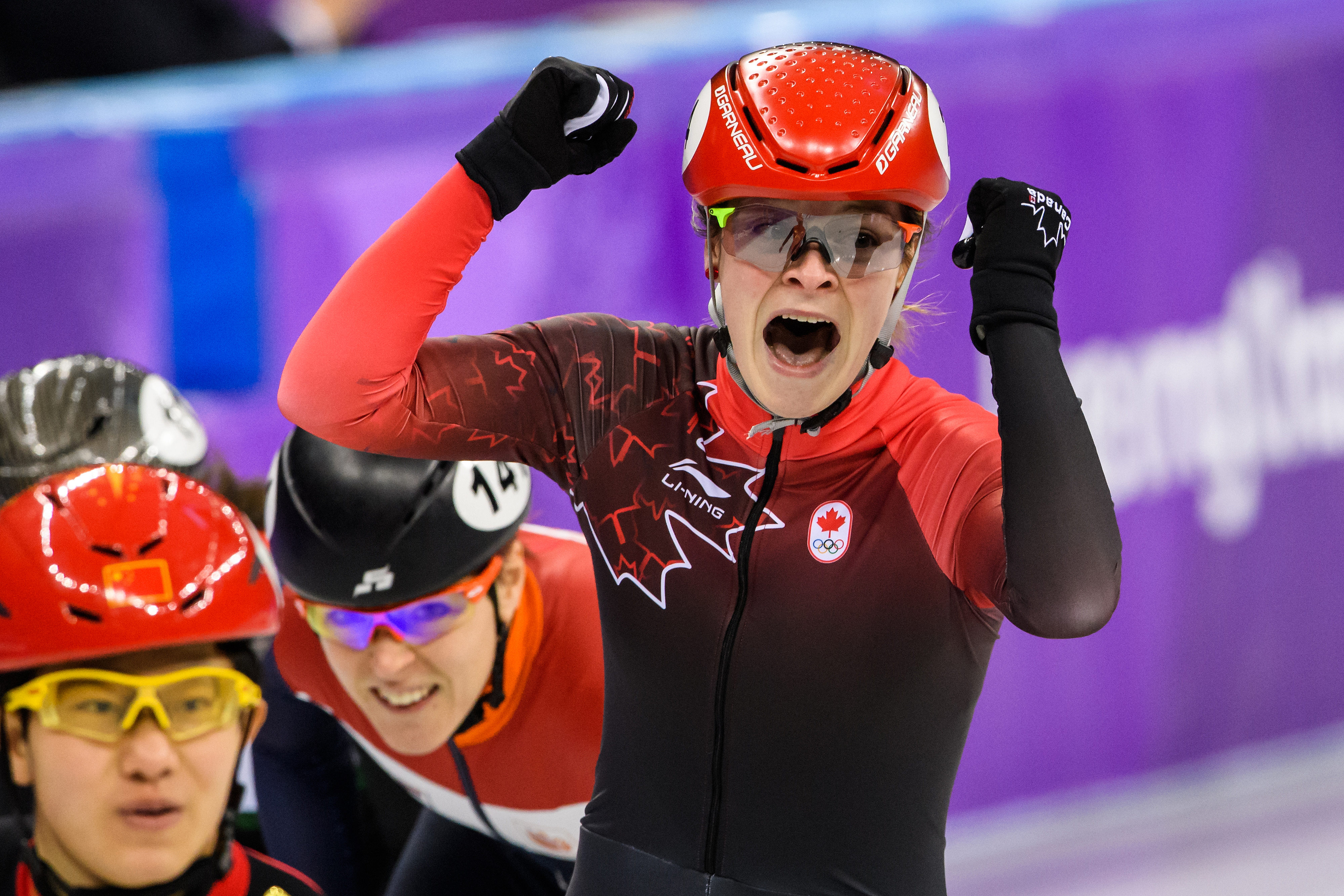
Kim Boutin wins bronze during the Short Track Speed Skating Women’s 1500m of the PyeongChang 2018 Winter Olympic Games at Gangneung Ice Arena on February 17, 2018 in Gangneung, South Korea (Photo by Vincent Ethier/COC)
Beyond teammates who helped her turn a nasty situation into another medal moment in Canadian Olympic folklore, Boutin was buoyed by family presence.
“My dad was there today and my mom was there, too. For me, it’s nice to have them close. It took me a lot of courage to get on to the podium so I’m pretty happy.”
The Canadian also recognizes it’s only a handful of bad apples who added to her difficulties. The closeness of rivals who travel and compete against each other year round won’t be deterred by petty insults.
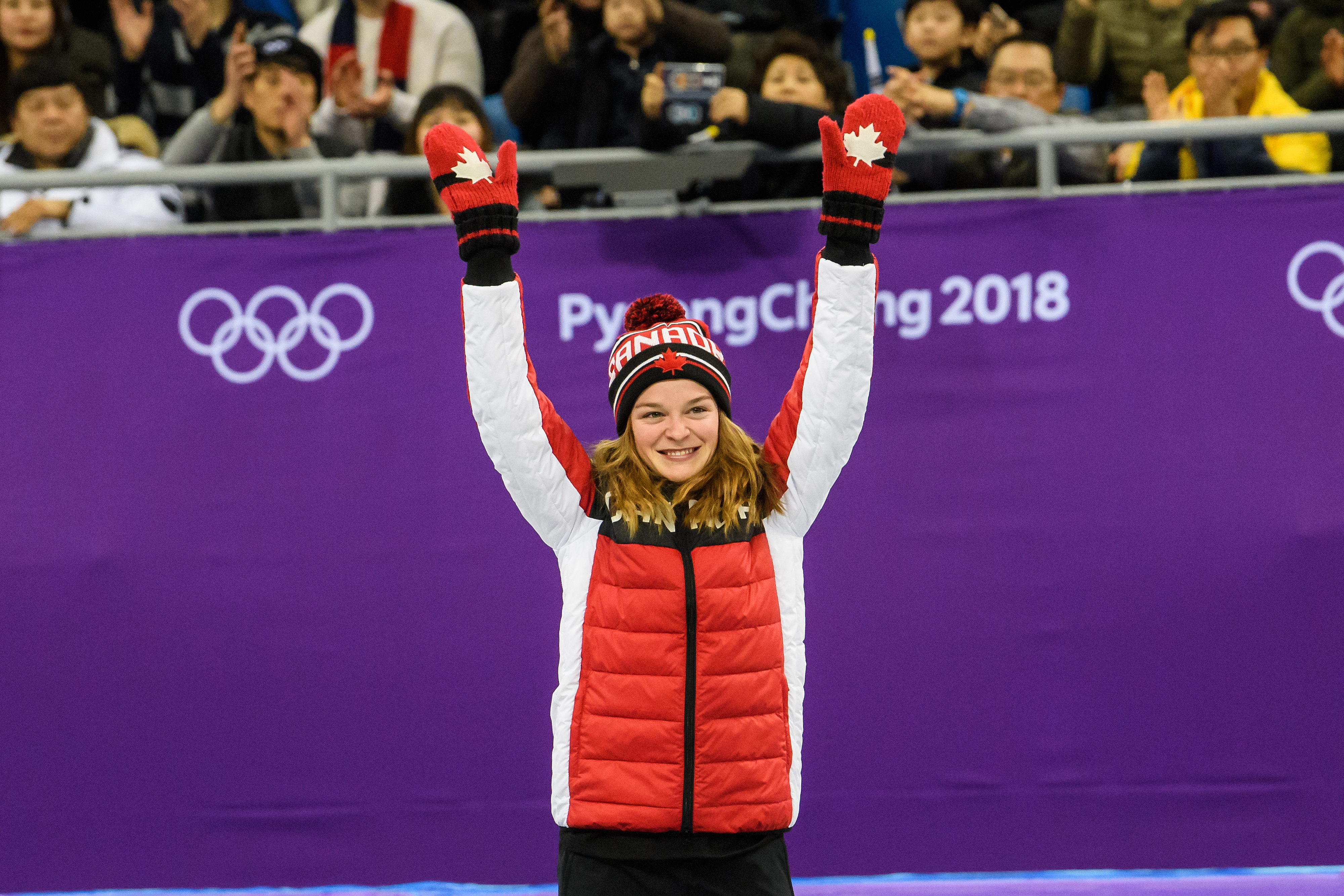
Kim Boutin wins bronze during the Short Track Speed Skating Women’s 1500m of the PyeongChang 2018 Winter Olympic Games at Gangneung Ice Arena on February 17, 2018 in Gangneung, South Korea (Photo by Vincent Ethier/COC)
“I don’t think I need to worry any more about that,” Boutin said. “Two days ago I hugged Choi because I think it’s really important to continue to enjoy what we do and be strong together.”
The growing maturity of Boutin and Girard is a tremendous development for short track in Canada as it enters a transition period. A great generation is giving way to the next. It’s much more than the promise of potential that’s being left behind, Canadians are getting tangible success in the form of Olympic medals as the process unfolds.
Coming into the Games much was expected of Hamelin and St-Gelais, the Canadian short track royal couple with seven Olympic medals between them, have confirmed this is their last go. While they have yet to find the podium in Korea, their legacy is assured in the rise of Girard and Boutin.

